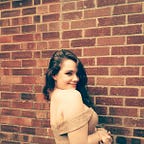A beautiful selection of stories with dense prose that reveals a glittering biopsy of California.
Christine Schutt
Short Stories | 144 Pages | 5” x 7.25” | Reviewed: Paperback ARC
978–0–8021–2761–7 | First Edition | $23.00
Grove | New York City | BUY HERE
You could call Christine Schutt a champion of the short story form, and very few would argue with you — after all, when John Ashbery calls your second collection of short stories the book of the year, you could ride out into the sunset with a margarita in hand, and no one would say you hadn’t earned it. But 22 years after the publication of Nightwork, Schutt hasn’t slowed down; rather, she’s sped up. Her newest release, Pure Hollywood, is a high-speed car chase through the hills of California. Those who are familiar with Schutt’s dense prose know her style requires unwinding and at times isn’t easy, demanding the reader’s full attention. But if you do stick with it, you will find a beautiful selection of stories that work as a glittering biopsy of California.
The title story opens within the “great fucking painting” that is the Piro house and its sole resident, Mimi, recently widowed after the suicide of her comedian husband. Mimi seems to be constantly grasping for something that she can’t identify, something that can’t be simply written off as grief beneath her calm composure. The fact that she’s falling apart against “the just-right night of Los Angeles” doesn’t seem to matter because everyone else in the hills is, too. Lingering in the background of this tale is an overarching commentary on the perils of showbiz, when her husband’s suicide is dismissed as a side effect of the city: “comedians don’t retire; they just get more depressed.” Art plays a supporting role in all these stories, but particularly in the titular one. The idea of Hollywood itself as an inhabitable work of art is by no means a new notion, but Schutt chooses to paint Los Angeles in pastel watercolors.
“The Hedges” brings us the beautiful, young couple, Lolly and Dick Hedge, on holiday for the first time with their baby, Jonathan, who’s sickly and seems hellbent on ruining the trip. The Hedges are parents who won’t admit they never wanted to be parents, and the resulting tension that swims through this piece is unrelenting, with the ultimate question Schutt asks becoming, “why these two, so lovely and young and clearly comfortable if not rich, why they, with their pouty, pretty son, were so unhappy.”
The “Species of Special Concern” delves into the world of the Corks — their friend, Dan, desperately in love with the wife, Nancy. Far from the melodramatic soap-opera style of so many portrayals of infidelity, Schutt manages to bring the situation the lightness and tragedy of high school-style crushes. In “A Happy Rural Seat of Various View: Lucinda’s Garden,” Schutt evokes F. Scott Fitzgerald with the fraught relationship between the young and beautiful newlyweds Pie and Nick, tragically tested by the appearance of the mysterious Gordon Brisk. “The Duchess of Albany” brings this section of the collection to a close, with an elderly woman tending her dead husband’s garden to defy the notion that “the garden dies with the gardener.”
Midway through the collection, the mood of Pure Hollywood shifts; the tales become shorter and more abstract. The dense language that lingered in the background like the Californian heat now takes center stage. “Family man” tells the life of an emotionally comfortable family man in fragments. “Where You Live? When You Need Me?” takes place in the summer of 1984, “the summer when little parts of little bodies turned up in KFC buckets in dumpsters in the city.” The title comes from the words of the neighborhood babysitter; her connection to anything is up to us as readers to determine. “Burst Pods, Gone-By, Tangled Aster” features a woman called Peg as a doped-up suburban housewife. Her husband, Anders, is unremarkable; her daughter, Andie, is institutionalized following a suicide attempt; and her son, Carl, is 37 and without direction. “The Dot Sisters” begins with Claire and Julia on a bridge in Chicago in the summer of 1970, orphaned, and possessing a letter hoping for their lives to get better — a moment of optimism that has one eye on tragedy. “Oh, the Obvious” features a bunch of odd, wealthy people horse-riding through a ranch together, the main protagonist being Mrs. Pall-Meyer, a rich, stuck-up lady who manages to be both repulsive and pitiful. The final story is “The Lady from Connecticut,” and it’s in this story our usually ice-cold indifferent narrator offers some reassurance: “Oh, lady from the suburbs, after too much wine in the city, don’t cry!” There’s something of Virginia Woolf in the way Schutt as narrator follows behind, a comforting breaking-through the narrative that acts as an arm around our protagonist.
Schutt writes with an aura of confidence. Her ability to write of death with such stasis, and sadness with such joy, leaves us guessing from story to story whether we are getting our happy ending or whether we even want it. Every scene she paints throughout this collection seems to float, like one of Monet’s waterlilies, soft and packed with skill. In fact, there’s something haute couture about Pure Hollywood; it seems the short-story equivalent of a Galliano gown, ornate and beautiful but never practical. Such writing doesn’t suit every reader — some may find it too thick with poetic prose — but those who stick with it will find a textbook example of an old master doing some of her best work.
